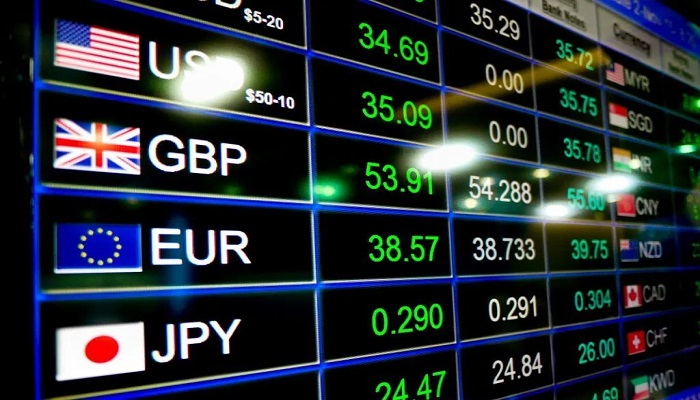The post is updated every day to give the day-to-day Exchange rate of the euro.
Exchange rates play a crucial role in the global economy, influencing everything from international trade to personal travel expenses.
Understanding how different currencies relate to each other, particularly the Euro (EUR) and the Naira (NGN), can offer valuable insights for individuals and businesses alike.
The article contains the euro to naira exchange bank rate, the euro to naira, the black market rate, Western Union, and MoneyGram exchange rate to the naira.
Euro to Naira Exchange Rate
- Buying @ 1 Euro = 1,739 Naira
- Selling @ 1 Euro = 1,745 Naira
Euro to Naira CBN Rate
- Buying @ 1 Euro = 1,739 Naira
- Selling @ 1 Euro = 1,739 Naira
Western Union Rates (EUR to NGN)
- Receiving @ ₦1,721 per €1
MoneyGram Rates (EUR to NGN)
- Receiving @ ₦1,720 per €1
Do note that all the rates we listed here may vary depending on the financial institution or exchange agent you are working with.
The Euro Currency
The European Euro came into existence on the first day of January 1999. Before this date, it had been a goal of the European Union and its predecessors since back in the 1960s.
After numerous negotiations, due to the opposition from the UK, the Maastricht Treaty entered into force in 1993 with the primary goal of creating an economic and monetary union by 1999 for all European Union States except the United Kingdom and Denmark.
In the year 1999, the currency was born but just virtually, and three years after that in 2002 notes and coins began circulation.
In a short period, the euro took over the former national currencies, and it slowly expanded behind the rest of the European Union.
The Euro (€) Symbol
The symbol for the European euro is a curved “E” with two cross lines €.
The euros are divided into euro cents, each of the euro cent consisting of one-hundredth of a euro.
Countries That Use Euro
The euro currency is one of the most influential currencies in the world of today. It is used by more than 175 million Europeans, consisting of 19 of 28 EU member countries, also some countries that are not formally members of the European Union.
The countries using the euro are:
- Andorra (not an EU member)
- Austria
- Belgium
- Cyprus
- Estonia
- France
- Finland
- Germany
- Greece
- Ireland
- Italy
- Kosovo
- Latvia
- Lithuania
- Luxembourg
- Monaco (not EU)
- Montenegro (not EU)
- Malta
- Netherlands
- Portugal
- San Marino (not EU)
- Slovakia
- Spain
- Slovenia
- Vatican City (not EU)
Factors affecting the exchange rate of the Euro to the Naira
- Nigeria depends so much on imported products
- Oil is the major source of government revenue
- The demand for foreign currency by Nigerians is on the high side
- Obsession with foreign products and services
- Looting of public funds and banking them in foreign banks
Brief History of the Euro
Origin and Development: The Euro was introduced in 1999 as the official currency of the Eurozone, replacing several national currencies. It is now used by 19 of the 27 European Union countries, making it one of the world’s most significant currencies.
Economic Significance: The Euro is the second most traded currency in the world, playing a vital role in global trade and finance. It is also a major reserve currency, held by central banks around the world.
Brief History of the Naira
Origin and Development: The Naira was introduced in 1973, replacing the Nigerian pound. Named after Nigeria, it symbolizes the country’s post-colonial identity and economic aspirations.
Economic Significance: The Naira is the official currency of Nigeria, playing a vital role in its economy, especially in the oil and gas sector.
Economic Ties Between the Eurozone and Nigeria
Trade Relations: The Eurozone and Nigeria have robust trade relations, with both regions exporting and importing a variety of goods. The Eurozone exports machinery, chemicals, and vehicles to Nigeria, while Nigeria exports oil, cocoa, and rubber to the Eurozone.
Investment and Business Links: There are substantial investments from European companies in Nigeria, particularly in the energy and telecommunications sectors. These investments reflect strong business ties between the two regions.
How Exchange Rates are Determined
Market Forces
Supply and demand in the forex market are primary determinants of exchange rates. High demand for a currency increases its value, while low demand decreases it.
Government Policies
Government interventions, such as trade restrictions and tariffs, can impact exchange rates.
Central Bank Interventions
Central banks may intervene in the forex market to stabilize or adjust the national currency’s value.
Factors Affecting Euro to Naira Exchange Rate
Economic Stability: The economic health of the Eurozone and Nigeria impacts their currencies’ values. Strong economies typically bolster currency value.
Political Stability: Political stability or instability can affect investor confidence and influence currency strength.
Inflation Rates: Higher inflation in a country typically devalues its currency compared to others with lower inflation.
Interest Rates: Higher interest rates offer lenders in an economy a better return relative to other countries. Consequently, higher interest rates attract foreign capital and cause currency appreciation.
Related Tag: euro to naira bank rate today, 2000 euro to naira, convert 100 euro to naira, convert 50 euro to naira, 200 euro to naira, 20 euro to naira. convert 500 euro to naira, 1000 euro to naira, euro to naira, convert 100 euro to naira, convert 50 euro to naira, 200 euro to naira, Italy currency to naira. Germany currency to naira, how much is 1 euro in naira, Nigeria exchange rate, how much is one euro in naira, 1 eur to ngn, exchange rate euro to naira.
RELATED ARTICLES



very good